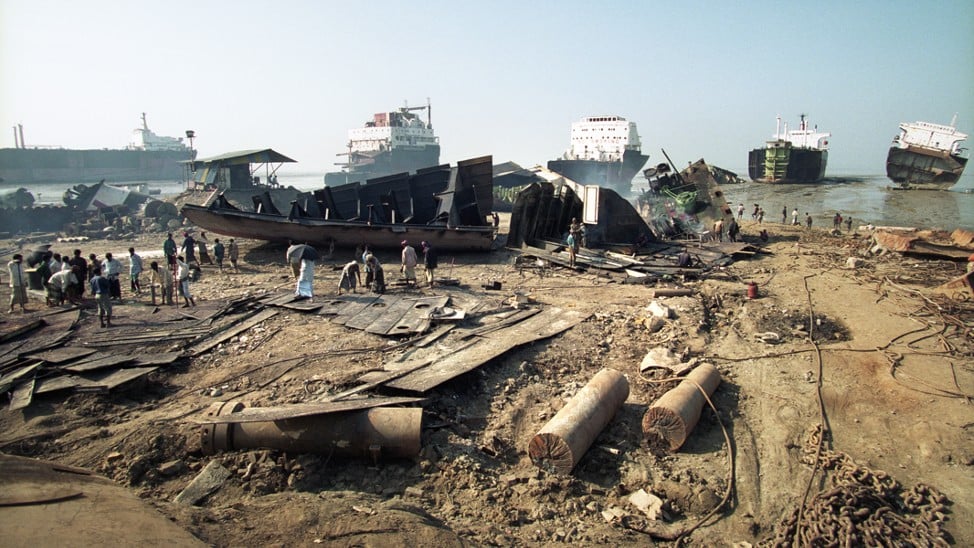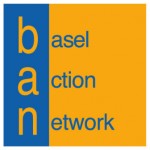
According to the Basel Action Network, the European Union is seemingly moving away from the Basel Convention (the international treaty on the control of transboundary movements of hazardous wastes and their disposal) and beginning to favour the shipping industry.
If true, the organization says it would set a precedent that anybody could disregard the Basel Convention for any waste stream and with any partners.
The long history of the Basel Ban Amendment, from its adoption in 1995 to its entry into force in December of 2019, has had multiple attempts to weaken it. At the outset in 1995, just after its adoption, countries argued that the ban could be circumvented by adding non-OECD countries to Annex VII or by using bilateral and multilateral agreements.
These notions and efforts were denounced by the European Union and developing countries as being illegal and contrary to the intent and purpose of the Amendment. The EU began to enforce the Ban Amendment as part of their Waste Shipment Regulation many years prior to its global entry into force.
Currently, according to BAN, the EU is now shifting away from their commitment to the Basel Convention, based on pressure from the global shipping industry.
In 1995, after the question was raised at the Basel Convention about using Article 11 to circumvent the Ban Amendment, Dr. Ludwig Kramer, as representative of the European Commission, wrote a letter to then Basel Executive Secretary Dr. Rummel-Bulska, stressing that their analysis concluded that Article 11 cannot be used to undermine the Ban Amendment. Dr. Kramer wrote:
"It is clear that bilateral, multilateral, or regional agreements or arrangements between Parties listed in Annex VII and Parties or other States not listed in Annex VII, when allowing for hazardous waste to be exported from the first to the latter, would circumvent the legal requirement of Article 4A in a way which is not foreseen by the Convention and are therefore not acceptable from a legal point of view."
However, in a letter from the European Commission to NGOs signed by Mattia Pellegrini, the Commission seems to have later changed their opinion. He writes:
"Should a facility located in a non-OECD country be included on the EU list in the future, the regime of the Ship Recycling Regulation would then allow in practice exports of EU-flagged end-of-life ships to that non-OECD country, whereas the Basel Ban Amendment generally prohibits such exports. Therefore, facilities from non-OECD countries can only be included on the EU list if the export of end-of-life ships to the county in question is covered by an agreement or arrangement satisfying the conditions of Article 11 of the Basel Convention. There is no provision in Article 11 that would prevent the EU from entering such a bilateral agreement or arrangement."
According to the Basel Action Network, Pellegrini seems ready to ignore the earlier council decision on this issue, and seems to be unaware of the major debate that took place at the Basel Convention when the question arose as to whether the Hong Kong Convention for ship recycling could ever be used as an Article 11 agreement and override the Basel Convention. They concluded that ships can be wastes and likely to be hazardous wastes when they are destined for recycling. It was also decided that for any Article 11 agreement to be valid, there needed to be an "equivalent level of control" to the control achieved by the Basel Convention. The Basel Convention's COP10 was never able to reach a consensus on equivalency but they did assert that the Basel Convention must apply to waste ship. That was agreed upon even when the Ban Amendment was not yet part of the Convention.
Now that it is, the Basel Action Network argues that allowing the export of toxic ships to take place, whether set up by the EU, or the EU and another party, or by the Hong Kong Convention, can never be seen as an "equivalent level of control" to a no-exceptions prohibition as embodied in the Ban Amendment.
Article 11 was put into the Convention for two reasons: a) to recognize stronger regimes, that apply more rigorous rules -- such as the Bamako Convention, or b) to allow non-Parties and Parties to trade in waste despite the Party to non-Party Ban found in Article 4.5 as long as the rules of such an agreement provided an "equivalent level of control". Article 11 was never intended to allow de-facto reservations from the Convention.



